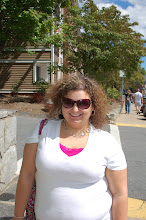In the last 6 months or so I've become involved in the twitterverse. You can follow me @lindseylea
#shamelessplug
Anyway, most of the people I follow on twitter are YA writers. I follow them for 2 reasons: 1) to see what they have coming up with tours, promotions and new books and 2) to keep up with news related to the reading and writing of the books I love so dearly and regularly recommend to my students.
Here's what has happened (literally) overnight:
This article ran in the Wall Street Journal (@wsj) with yesterday's date. The writer begins with a story about a mom who left a B&N completely disheartened because she couldn't find anything to give her 13-year old child to read as a welcome home gift (not that it's my business, but who sends their 13-year old child away long enough that they need a "welcome home" gift?). I digress. Anyway, the article goes on to say that 40 years ago there was no YA fiction, so there wasn't a genre to "deal with." Excuse me, deal with? You deal with bad behavior and you deal with bad situations. You don't deal with books and a teen's need to read them. Yes, I said need.
So. Where do I go from here?
There are a few different statements I need to make as my own response so the three of you who read this blog can be the ones I vent to:
It is not the responsibility of YA authors to censor what a child/teen reads. That's up to the parent. If you don't like the covers of the books, don't buy them. If you don't want your kid to read, keep hiding them under a rock and then wonder why they have no social skills and no contemporary knowledge, but don't ruin YA for the rest of us.
If you want to keep certain things out of your child's hands, then do so. But shouldn't you bother to read what they're looking at? Or ask around? Or read a review online before you cast your judgment. "It's too dark" isn't a justified reason unless you've read the book.
B&N, you've got to do a better job with your employment process. How do you allow a person who has not read any of the books in the YA section to assist customers in the YA section?! I'm just saying: I end up recommending titles to parents and teens alike every time I'm in a bookstore because that's just what happens. I've read the books, making me an educated source.
WSJ, did you even read any YA lit, or did you just stop the first ultra-protective parent who whined to you? If you haven't experienced Laurie Halse Anderson's Speak or Ellen Hopkins' Crank or Suzanne Collins' The Hunger Games then you can't pass judgment on them or the genre as a whole. What about the Harry Potter series? Did you even get the point, after thousands of pages across 7 books that good conquers evil and that love is the most powerful force of all? Is that too dark for you? Are you the people who have tried to get that beloved series banned in schools? Yeah, we have to fight battles of evil and sometimes there are sacrifices to be made but you're kidding me if you want me to believe that it's too much for a 13-18 year old person to wrap their head around.
YA authors are pushing the boundaries in fiction because it's their way of saying something that needs to be said. John Green writes incredible books about troubled teens. Looking for Alaska explores suicide, Paper Towns explores teen rebellion, and his collaboration with David Levithan Will Grayson, Will Grayson explores (gasp!) gay teens and their relationships. Ellen Hopkins' books explore drug addiction, teen pregnancy, abuse, divorce, you name it. If no one could connect with these topics, the books wouldn't sell. I admire the nerve and guts these writers have to put this kind of material out there.
Those of us who are outraged by the WSJ article are using the hashtag #YASaves to tell our stories defending the books and authors we love. If you have a story, please join us. YA is just one way for students to connect with each other and with the world around them.



No comments:
Post a Comment